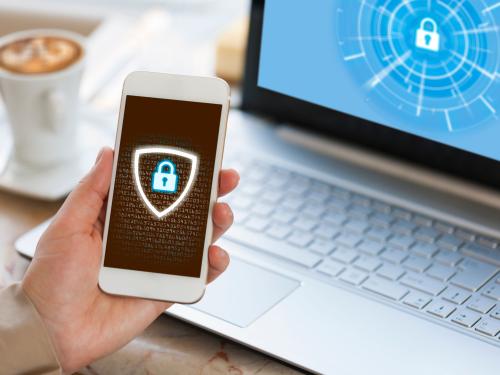
Protecting Your Digital Life | Why Cybersecurity is Crucial in Today’s Virtual World
The entire world has gone virtual and all our personal information is out there available to everyone. We may feel secure, but we really are not. We just can’t see the villain but he is there, hiding behind a computer. Learn more about how to protect yourself in the modern world of technology.
What is Cybersecurity
After a little research about cybersecurity, as a complete amateur, I realized, it’s this simple; It’s a Tuesday morning, and you go to a grocery store. It seems to be a regular day of your life. Suddenly somebody grabs your purse and starts running. They stole your wallet – with your money, driver’s license, ID card, and other personal information.
Now, aren’t we all shopping online? Begin with Amazon through cosmetics to actual groceries? To complete placing the order, we fill up a form with our home address, personal information, and phone numbers, and then we pay with our credit card. Of course, you are in the safety of your home, but that doesn’t mean, no one can attack you and steal your “purse” there. Without us realizing it, we may feel alone and safe at home, but we are exposed to way more thieves this way, than just walking on the street.
That’s why even a basic understanding of this topic is fundamental nearly for everyone today. Cybercrime is just as real as street crime. It can start with online transactions, stealing your identity, data leaks, intellectual data thefts, financial loss, and losing your entire online company because you got hacked. Cybersecurity is the pepper spray you carry in your pocket and it’s important to learn how to protect yourself if you own an online business, work remotely, or trust the online world with your personal information on a daily basis.

Why we should all learn about cybersecurity
If you’re a business owner or work remotely, the topic of cybersecurity should be one of the top topics in your palette of interests. But even if you’re an ordinary person, using social media or payments through your device, this shouldn’t go past you. Learn about Cybersecurity to protect your business, increase trust between your product and your customers, be up to date with technology innovation, and secure your data in the cloud or in companies it can help secure the financial position of an organization, avoid fines and penalties, preserving the organization’s ability to function, staying strong or having an advantage amongst the competition. In an extreme situation, a cyberattack can cause a power failure and that can lead to other disasters. Hackers nowadays, can disable hospitals or even hack government computers and that could lead to war.
3 most common Cyber Attacks
- Man-in-the-middle (MitM) Attacks; the type of attack when a hacker steals login information to your account and then changes your password (typical on Instagram accounts). It can lead to withdrawing your personal or bank information.
- Ransomware Attacks; this type of attack will deny to access your files on your computer. Typical in organizations, but it can happen to a user too.
- Phishing Attacks; attackers usually send you malicious emails that trick you into falling for a scam and giving away your personal information, making payments, etc.
To learn more about these types of attacks, check Emertus or Knowlidgehut. These websites that help me to put this article.
World of technology – 7 simple ways to protect yourself from hacking
How to prevent hacking and protect your business
In an online business, we always want to protect our data and sensitive information to make sure a customer can trust us and feel safe. You should always have built a cybersecurity policy and trained your employees, especially those working remotely, to spot and report a cyber attack. Make sure you also track and monitor any network suspicious activity. Protecting your business with fair steps like these can prevent you from becoming a victim.
As an individual you can protect yourself by learning a few simple habits while browsing or working on your laptop or any other device:
- Use Strong Passwords
- Use a Password Manager
- Don’t Reuse Passwords
- Keep Your Software up to Date
- Use Two-factor Authentication
- Be Cautious of Phishing Scams
- Back up Your Data
Thank you for reading this article and we hope you learned some basics about cybersecurity. As we are speaking of this topic, we would like to invite you to our 5th International Conference Online on April 5 and 6, 2023, where we are going to discuss cybersecurity from all perspectives possible.
If you are interested in learning more about this topic, we highly recommend you check out this event.



